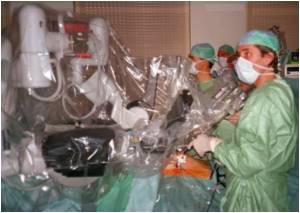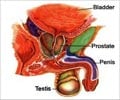A particular prostate cell that researchers had hitherto not taken into account could be the trigger point of malignant prostate cancer, new studies reveal.

Previous research from Witte's laboratory showed that, in mice, basal cells, not luminal cells, acquired the genetic damage required to turn cancerous.
To extend these results to humans, Witte and colleagues at UCLA developed new techniques to study human prostate tissue and its propensity to cause cancer.
Over a period of several years, the team first identified a series of unique cell surface markers that help researchers distinguish luminal cells from basal cells. They then used these markers to separate the two cell types in samples of human prostate tissue.
Patients undergoing prostate cancer surgery agreed to donate the tissue for research studies. In those operations, a surgeon typically removes healthy tissue along with the cancer. The tissue from those operations was given to Witte's team to provide the material they needed for their studies.
After separating luminal cells from basal cells, the researchers prodded all of the cells to become cancerous by introducing three genes known to promote prostate cancer. A virus was used to deliver the genes-called AKT, ERG, and AR - into luminal cells and basal cells.
Advertisement
In the meantime, though, the basal cell grafts had gone through three stages: They had grown into prostate-like tubules, transformed into damaged pre-cancerous cells, and then turned malignant and formed tumours.
Advertisement
The engrafted basal cells - after turning cancerous - also looked very much like luminal cells, as in clinical tumour samples. Witte says that this suggests that on their way to becoming cancerous, basal cells grow into more luminal-like cells.
The study has been unveiled in the July 30, 2010 issue of Science.
Source-ANI








![Prostate Specific Antigen [PSA] Prostate Specific Antigen [PSA]](https://www.medindia.net/images/common/patientinfo/120_100/prostate-specific-antigen.jpg)






